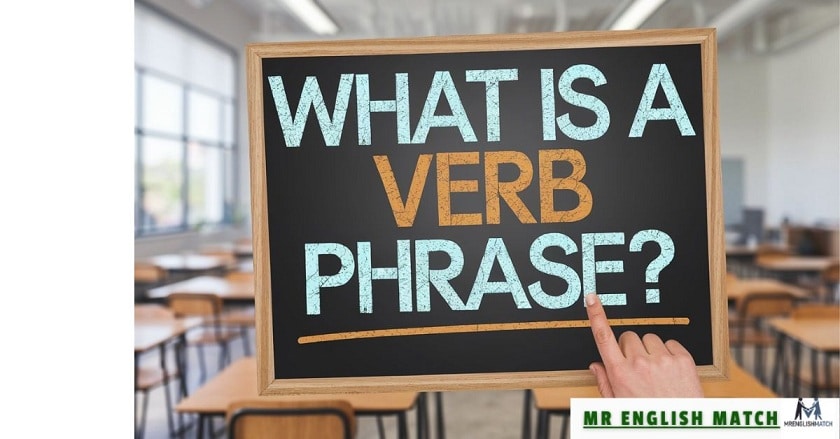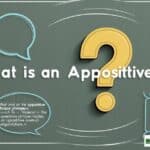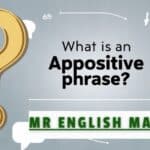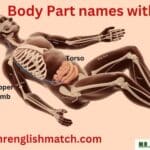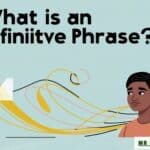What Is a Phrase?
In simple terms, a phrase is a group of words that acts as a single part of speech in a sentence. Unlike a complete sentence, a phrase does not convey a full thought since it lacks a subject-verb combination. There are different types of phrases in English, such as noun phrases, prepositional phrases, and of course, verb phrases. Each type has its own function and purpose in communication, but here, we will dive deep into the world of verb phrases.
A verb phrase is a combination of a verb and its complements, objects, or modifiers. While a single verb can express a straightforward action or state, adding helping verbs and objects extends its meaning. For example, “She is singing beautifully” contains a verb phrase that adds depth to the action. By knowing what is a verb phrase, you’ll understand its role in providing more context to actions in sentences.
What Is a Verb Phrase?
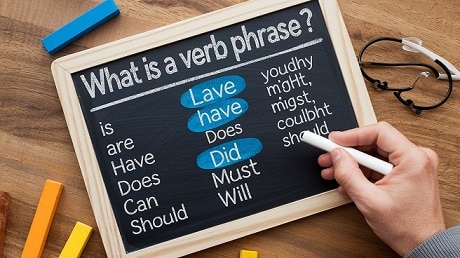
A verb phrase is a group of words made up of a main verb and one or more helping (auxiliary) verbs. In a simple sentence like “He has eaten the sandwich,” the words “has eaten” make up the verb phrase. The main verb is “eaten,” and “has” is the helping verb. Verb phrases can make sentences more informative, indicating tense, mood, voice, and more. Understanding what a verb phrase is will help you express yourself more precisely in both writing and speaking.
When you learn to spot verb phrases in sentences, you’ll notice how they bring details to life. Think about “I will be going to the market.” Here, “will be going” is a verb phrase indicating a future action. Verb phrases are powerful tools for conveying time, action, and context in just a few words.
How to Identify a Verb Phrase
Identifying a verb phrase involves looking for the main verb and any supporting words around it. The main verb typically shows the main action, while auxiliary verbs like “is,” “has,” “do,” and modal verbs such as “can,” “may,” or “will” add more context. Ask yourself if the group of words together makes sense and describes an action, condition, or state. For example, in “She should have known better,” “should have known” is the verb phrase.
Knowing how to identify a verb phrase can be tricky, as it requires you to pay attention to sentence structure. Sometimes, other words (like adverbs) may separate the verbs in a phrase, such as “She has quickly completed the task.” Recognizing these breaks and understanding that they are part of a phrase can make your understanding more solid.
Verb Phrase Examples and Samples
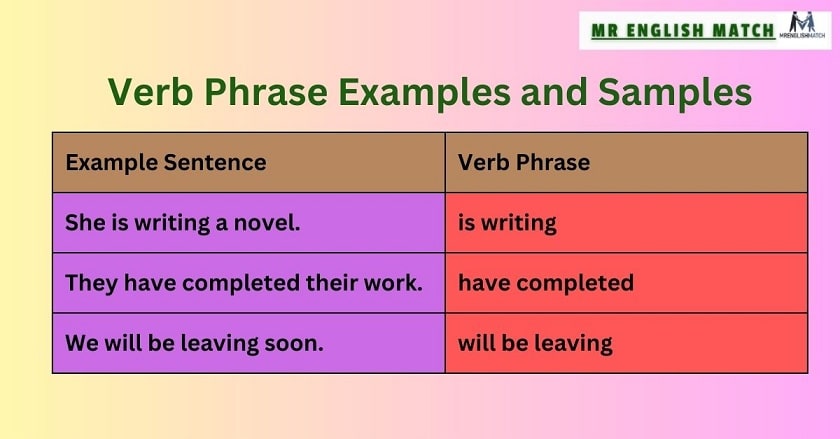
Understanding verb phrase examples can clarify their use. Consider “They are playing soccer.” Here, “are playing” functions as a verb phrase indicating an ongoing action. In “I have finished my work,” “have finished” shows a completed action in the present perfect tense. Each example serves to demonstrate the specific function of verb phrases in different contexts.
A useful sample of verb phrase might include examples like “She is writing,” “He will travel,” and “We had seen.” Each verb phrase sample reflects changes in tense and form, adding richness and specificity to sentences.
| Example Sentence | Verb Phrase |
|---|---|
| She is writing a novel. | is writing |
| They have completed their work. | have completed |
| We will be leaving soon. | will be leaving |
There are 60 verb phrase examples in three lists.
Common Daily Verb Phrases
There is a list of verb phrases in 20 phrases in English
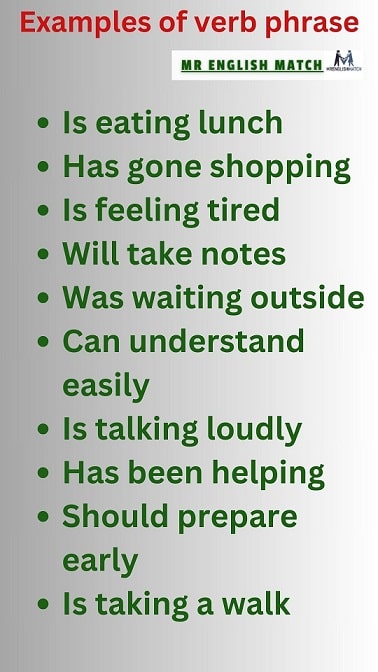
- Is eating lunch
- Has gone shopping
- Is feeling tired
- Will take notes
- Was waiting outside
- Can understand easily
- Is talking loudly
- Has been helping
- Should prepare early
- Is taking a walk
- Can lift heavy items
- Is practicing yoga
- Must apologize soon
- Is driving home
- Was cleaning dishes
- Will submit soon
- Has started jogging
- Is managing time
- Might skip dinner
- Should speak politely
Everyday Activities Verb Phrases
This is the list of verb phrases in 20 phrases in English
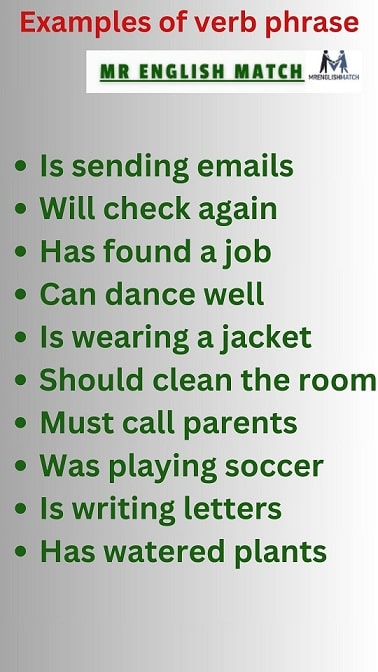
- Is sending emails
- Will check again
- Has found a job
- Can dance well
- Is wearing a jacket
- Should clean the room
- Must call parents
- Was playing soccer
- Is writing letters
- Has watered plants
- Can memorize facts
- Is attending class
- Will work overtime
- Might forget quickly
- Should rest now
- Is planning a trip
- Was driving fast
- Can make coffee
- Has closed the shop
- Is opening windows
Goal-Oriented and Intentional Verb Phrases
Here is the list of verb phrases in 20 phrases in English
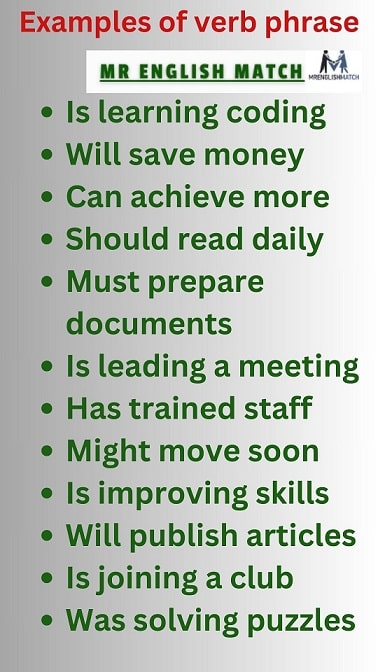
- Is learning coding
- Will save money
- Can achieve more
- Should read daily
- Must prepare documents
- Is leading a meeting
- Has trained staff
- Might move soon
- Is improving skills
- Will publish articles
- Is joining a club
- Was solving puzzles
- Can cook meals
- Has organized files
- Is teaching classes
- Will review work
- Might win awards
- Should support others
- Must reduce waste
- Is creating art
Types of Verb Phrases and Their Uses
There are different types of verb phrases, each with a distinct function. Auxiliary verb phrases use helping verbs to change tense, as in “He is running.” Infinitive verb phrases use “to” plus the base verb, such as “She wants to learn Spanish.” Modal verb phrases, like “You must try harder,” indicate possibility, necessity, or ability.
Understanding what is verb phrase types helps you communicate effectively. These phrases can provide emphasis, indicate intention, or modify meaning in nuanced ways. Learning to use them in daily communication makes a huge difference.
Auxiliary Verb Phrases
Auxiliary verb phrases consist of a main verb and one or more auxiliary (helping) verbs. The auxiliary verbs work together with the main verb to express tense, voice, mood, or aspect. For example, in the sentence “She is working on the project,” “is” is the auxiliary verb that indicates the present continuous tense, while “working” is the main verb. Auxiliary verbs include “be,” “have,” and “do,” and they can change the meaning or time of the main verb’s action. Consider this example: “He has been waiting for an hour.” Here, the phrase “has been waiting” shows a continuous action that started in the past and continues into the present.
Modal Verb Phrases
Modal verbs add additional meaning to a verb phrase by expressing ability, possibility, permission, or necessity. THESE verb phrases are formed using a modal verb followed by the base form of the main verb. Common modal verbs include “can,” “may,” “must,” “shall,” “will,” “should,” and “might.” For instance, “You must finish your homework” conveys a strong necessity or obligation, while “He might travel next month” indicates a possibility. Modal verb phrases allow for nuanced expression and can modify the certainty or tone of an action being described.
Infinitive Verb Phrases
An infinitive verb phrase starts with the word “to” followed by the base form of the verb. Infinitive phrases can act as nouns, adjectives, or adverbs within a sentence. For example, “She loves to read mystery novels” uses the infinitive phrase “to read” as the object of the verb “loves.” In another example, “He prepared to leave early,” the phrase “to leave” shows intent or purpose. Infinitive phrases are versatile and can convey various meanings, such as purpose, intention, or preference.
Participle Verb Phrases
Participles can appear as part of verb phrases and usually function as adjectives or components of compound verbs. A present participle ends in “-ing” (e.g., “walking,” “running”), while a past participle often ends in “-ed,” “-d,” “-t,” “-en,” or “-n” (e.g., “eaten,” “burnt”). For example, in “The crying baby needs attention,” “crying” functions as a participle modifying “baby.” Participial phrases can also create complex verb forms in sentences, as in “They were singing loudly,” where “were singing” forms a continuous tense.
Gerund Verb Phrases
Gerunds are verbs that end in “-ing” and function as nouns. When used as part of a verb phrase, they retain their noun-like qualities while carrying the action expressed by the verb. In the sentence “Running is good for health,” “running” acts as the subject of the verb “is.” Gerund phrases can play the role of the subject, object, or complement in a sentence and help in creating concise and expressive statements.
Phrasal Verb Phrases
Phrasal verbs consist of a main verb combined with one or more particles (adverbs or prepositions), creating a meaning distinct from the individual words. For example, “He gave up smoking” shows a phrasal verb phrase, with “gave up” meaning to quit or stop. Phrasal verb phrases can be tricky for learners, as their meanings often differ from the literal meanings of the words used.
By understanding these types of verb phrases, you gain a deeper insight into how English verbs interact with other words to create complex meanings, enrich communication, and provide context to actions. Whether you are using auxiliary, modal, or participial phrases, each type serves a specific purpose in enhancing sentence structure and conveying precise meanings.
Action Verb Phrases for Different Purposes
Action verb phrases for accomplishment can motivate and inspire, like “She has achieved success.” Such phrases indicate completed actions or milestones. Action verb phrases for activities, like “They are playing chess,” focus on what people are doing. Action verb phrases for hardworking people often show perseverance, such as “He kept working late hours.” Finally, action verb phrases that describe achievement reflect success, like “She has won the award.”
Here is a list of action verb phrases you can use:
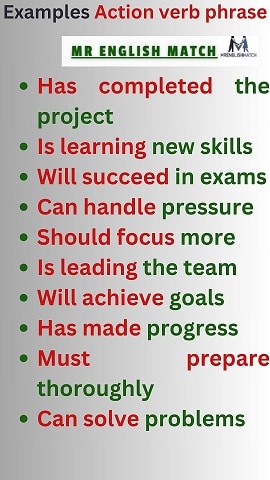
- Has completed the project
- Is learning new skills
- Will succeed in exams
- Can handle pressure
- Should focus more
- Is leading the team
- Will achieve goals
- Has made progress
- Must prepare thoroughly
- Can solve problems
Common and Popular Phrases in English Related to Verbs
Typical phrases and common phrases in English often incorporate verbs. In daily conversations, common phrases in the English language such as “I am going” or “He has done” reflect frequent use. Common English phrases help you communicate effectively, while popular phrases capture widely used expressions in culture.
Using common sayings and phrases with verbs makes speech more natural. Phrases like “She is running late” or “He has left” are typical phrases that fit many situations, making them indispensable for daily communication.
Structure and Rules of Verb Phrases
The structure of the verb phrase involves a main verb plus auxiliary verbs in specific orders. Typically, helping verbs precede the main verb, such as “She has been working.” When you know what is the rule of a verb phrase, you can build accurate sentences.
Consider three-word verb phrases, like “I have been walking.” These phrases extend meaning while maintaining clarity. To answer “How many words is a verb phrase?” the answer depends on the number of helping verbs used.
You should like also:
Adjective Phrase: A Guide for Everyday Use
Frequently Asked Questions (FAQs)
What is a Verb Phrase?
A verb phrase consists of a main verb and any auxiliary (or helping) verbs that accompany it, creating a group of words that express an action, occurrence, or state of being. For example, in the sentence “She has been studying,” “has been studying” is a verb phrase. Verb phrases help provide information on tense, mood, and other nuances of the action.
How Do Verb Phrases Add Meaning to Sentences?
Verb phrases clarify when an action occurs and add detail about how it unfolds. They can include auxiliary verbs like “is,” “has,” “will,” or “can” to modify the meaning and tense of the main verb. For instance, “is running” indicates an ongoing action, while “has completed” shows a finished action.
What is the Difference Between a Verb Phrase and a Phrasal Verb?
A verb phrase contains a main verb and any auxiliary verbs, while a phrasal verb combines a main verb with a preposition or an adverb, creating a distinct meaning. For example, “give up” is a phrasal verb with a specific idiomatic meaning (to quit), whereas “has given” is a verb phrase showing tense but without altering the verb’s core meaning.
Can a Verb Phrase Be Three Words?
Yes, a verb phrase can consist of three words or more. For example, “She will have arrived” is a three-word verb phrase that includes the auxiliary verbs “will” and “have,” helping indicate a complex tense. Verb phrases can extend further with the addition of more auxiliary verbs to express nuances in time or modality.
What Types of Verbs Can Be Found in Verb Phrases?
Verb phrases can include various types of verbs, such as main verbs that carry the primary meaning of the phrase, and auxiliary verbs like “do,” “be,” and “have,” which modify the main verb. Modal verbs such as “can,” “might,” and “should” also often appear in verb phrases to indicate possibility, necessity, or other nuances.
How Do You Identify a Verb Phrase in a Sentence?
To identify a verb phrase, find the main verb and check for any helping verbs that come before or after it. Together, these words make up the complete verb phrase. For example, in “She is walking quickly,” “is walking” is the verb phrase, combining an auxiliary verb (“is”) with the main verb (“walking”).
What Role Do Auxiliary Verbs Play in a Verb Phrase?
Auxiliary verbs modify the main verb and help form different tenses, moods, and voices. In a verb phrase like “has been eating,” the auxiliary verbs “has” and “been” indicate that the action of eating began in the past and continues into the present. Auxiliary verbs can significantly alter the meaning of a verb phrase.
Can Verb Phrases Describe Future Actions?
Yes, verb phrases are used to indicate future actions, often with modal or auxiliary verbs like “will” or “shall.” For example, “He will travel next week” uses the verb phrase “will travel” to show a planned future action. The use of auxiliary verbs in this context helps convey intention or expectation.
How Do Verb Phrases Relate to Tense?
Verb phrases often define the tense of a verb, indicating when the action takes place. For example, “was cooking” shows past continuous tense, while “will be cooking” represents future continuous tense. The combination of auxiliary and main verbs provides context for the time and duration of an action.
Are Verb Phrases Important in Everyday Speech?
Yes, verb phrases are essential for conveying detailed and accurate meanings in everyday speech and writing. They allow speakers to express precise times, conditions, and nuances of their actions. Common phrases such as “is leaving soon” or “has already eaten” give listeners or readers a clear understanding of events and their contexts.
Conclusion
To understand verb phrases is crucial for mastering the English language. These phrases, which consist of a main verb and one or more auxiliary verbs, help to convey actions, states, and events with precision, while also indicating when the action happens. Whether you’re using simple verb phrases like “has completed the task” or more complex ones like “will have been waiting,” they provide structure and clarity to your communication. Additionally, knowing the difference between verb phrases and phrasal verbs allows for a deeper understanding of sentence construction and meaning. As you continue to practice and use verb phrases, you’ll improve both your writing and speaking skills, making your English more fluid and effective.
Understanding verb phrases makes your English communication clearer, expressive, and more impactful, helping you speak and write confidently.
Sources


